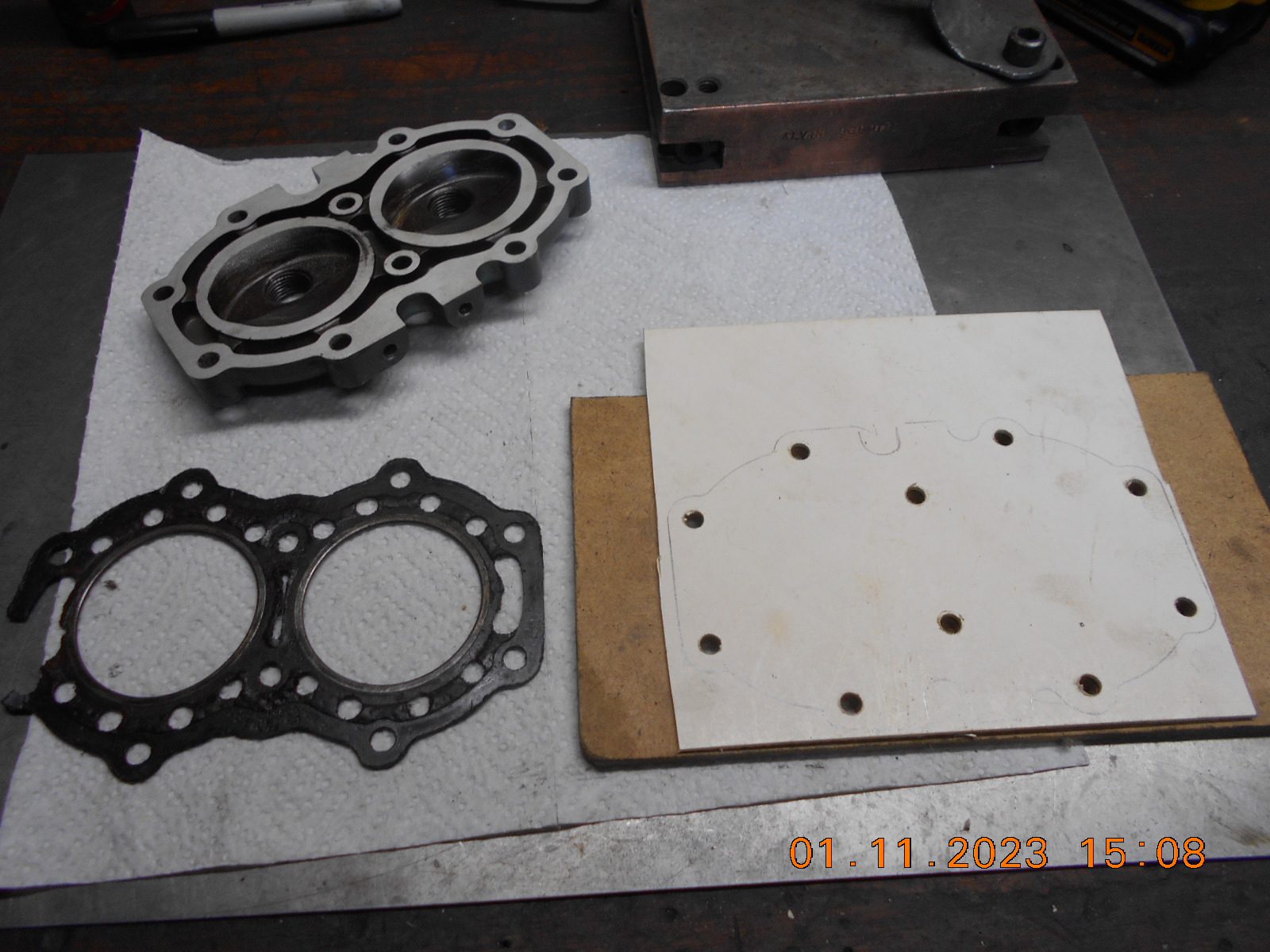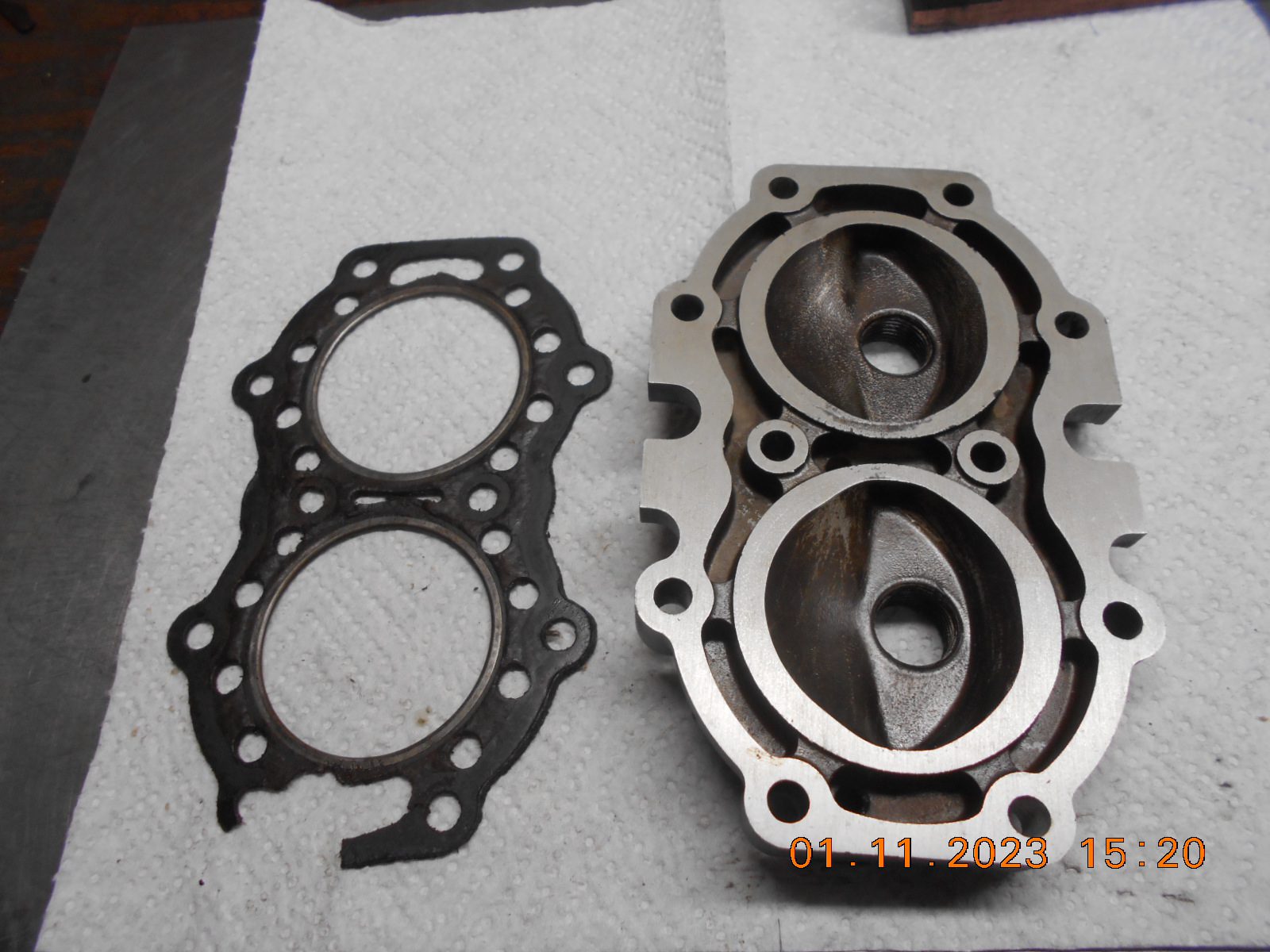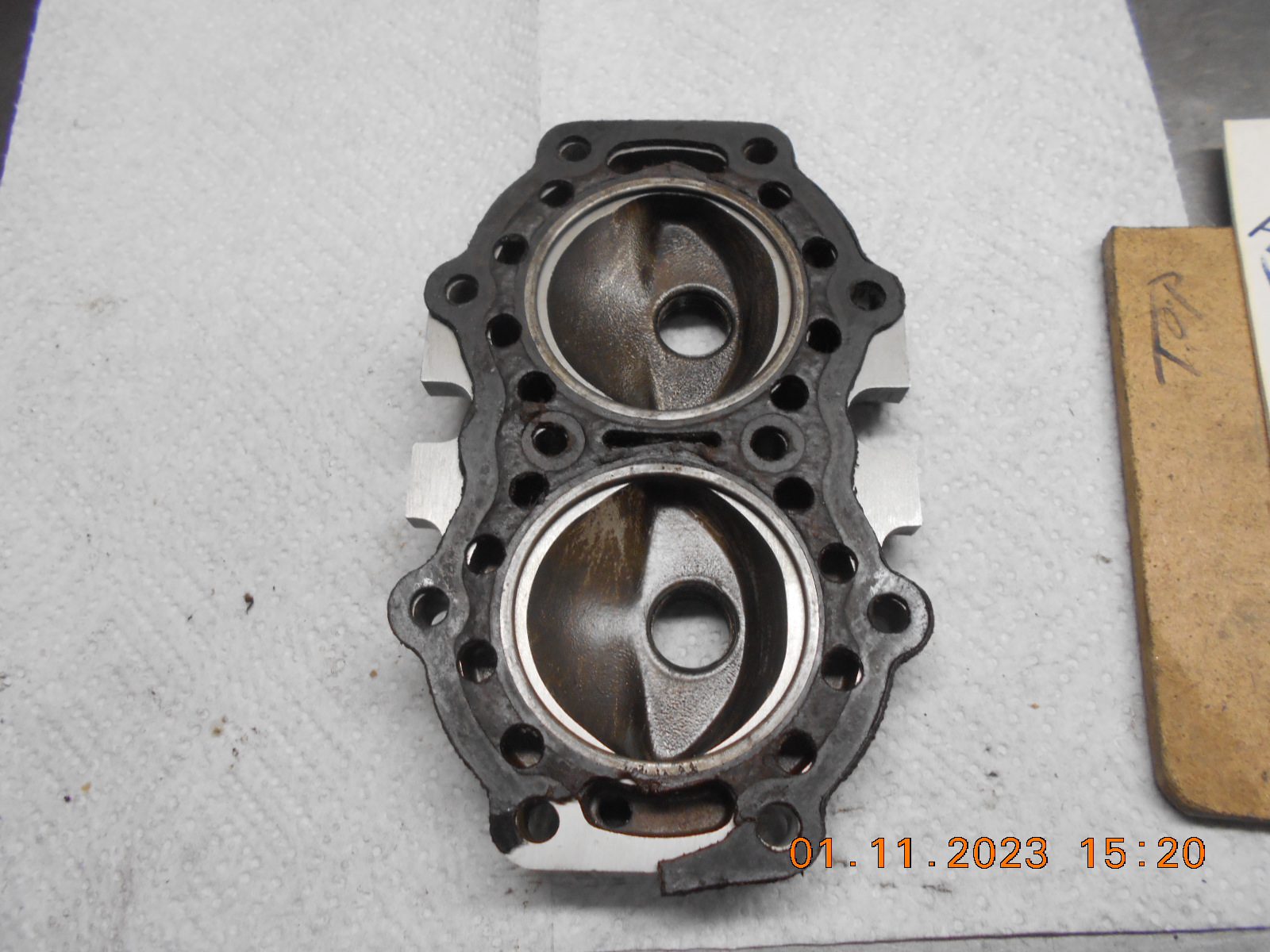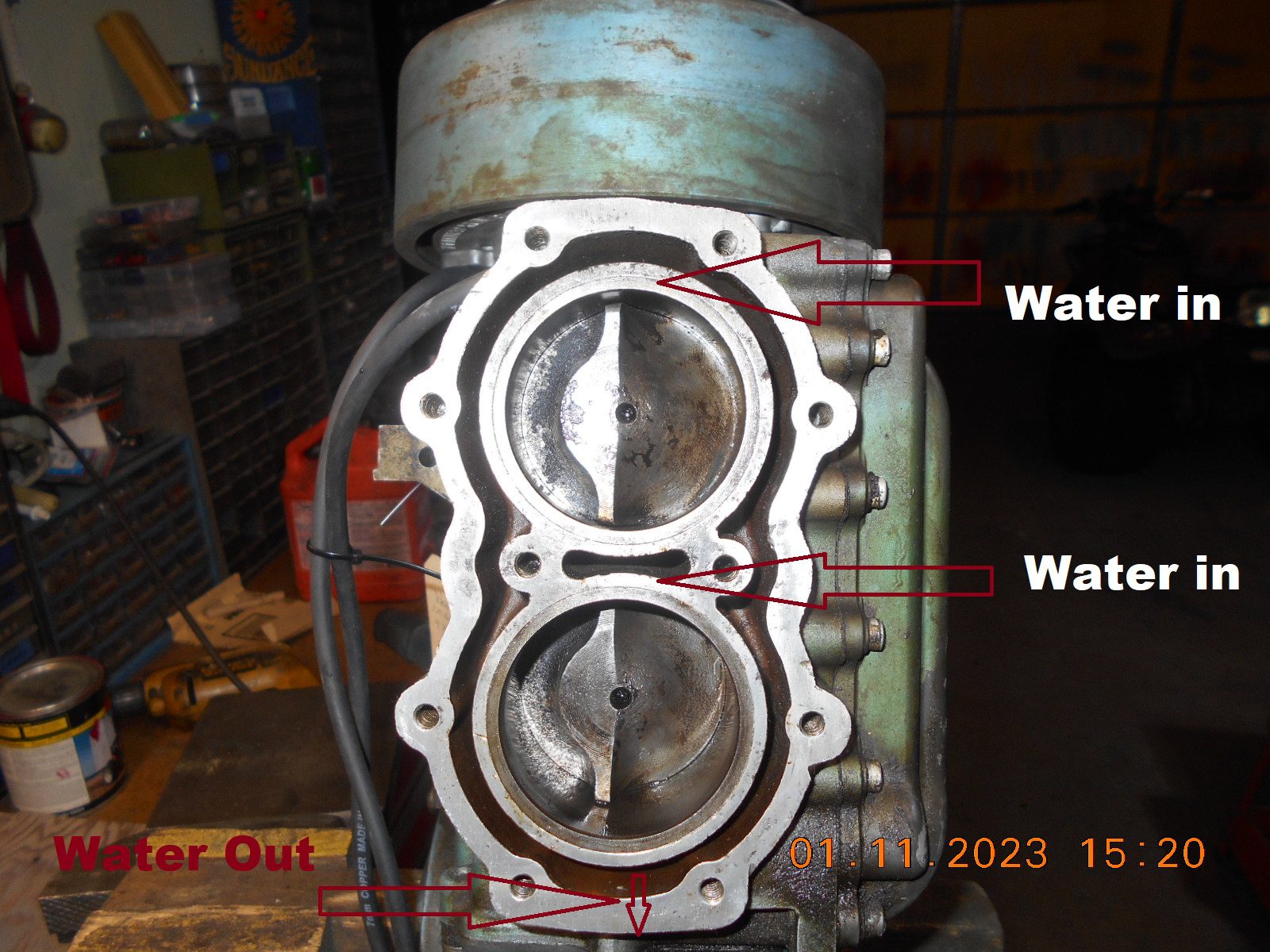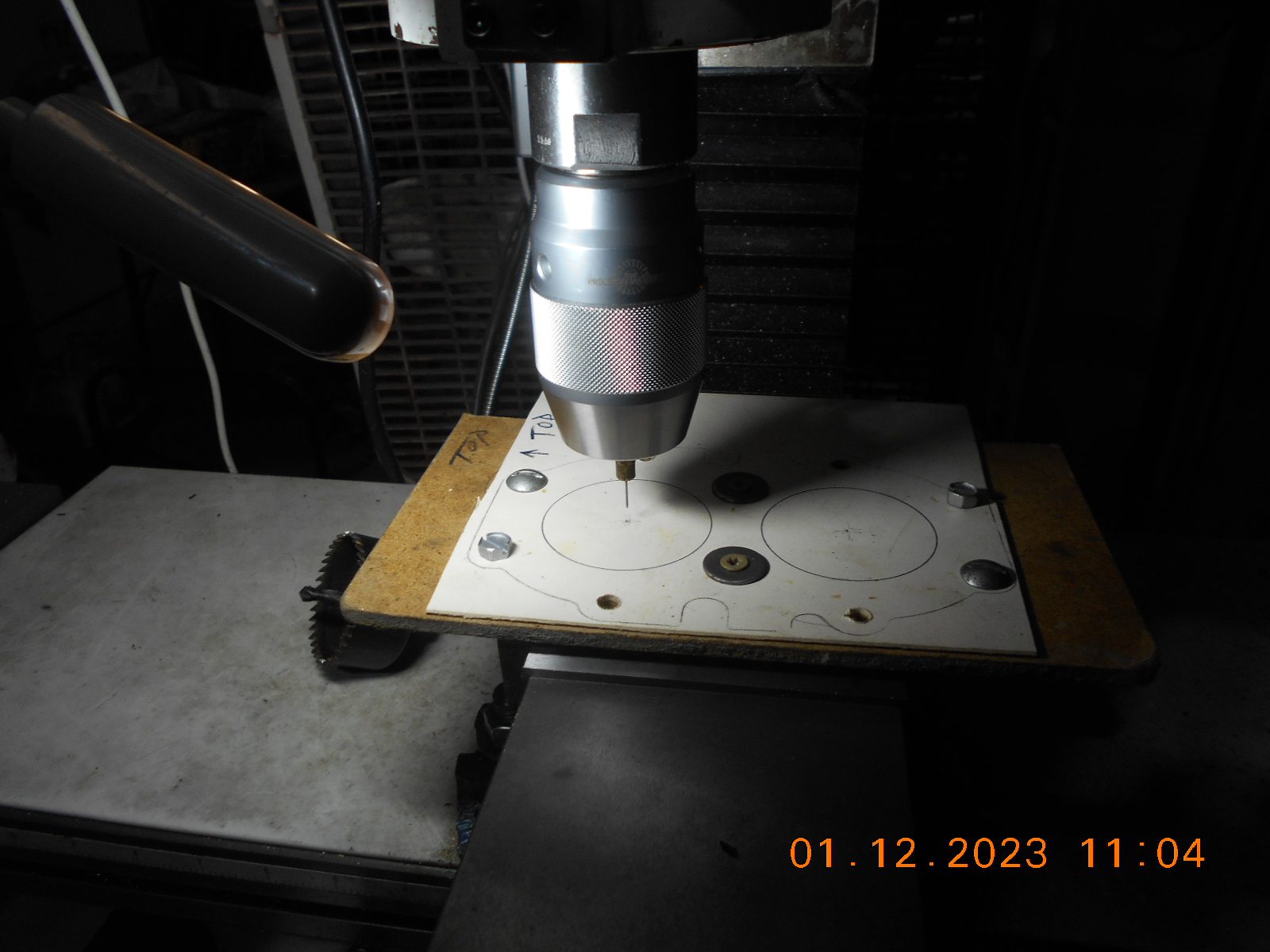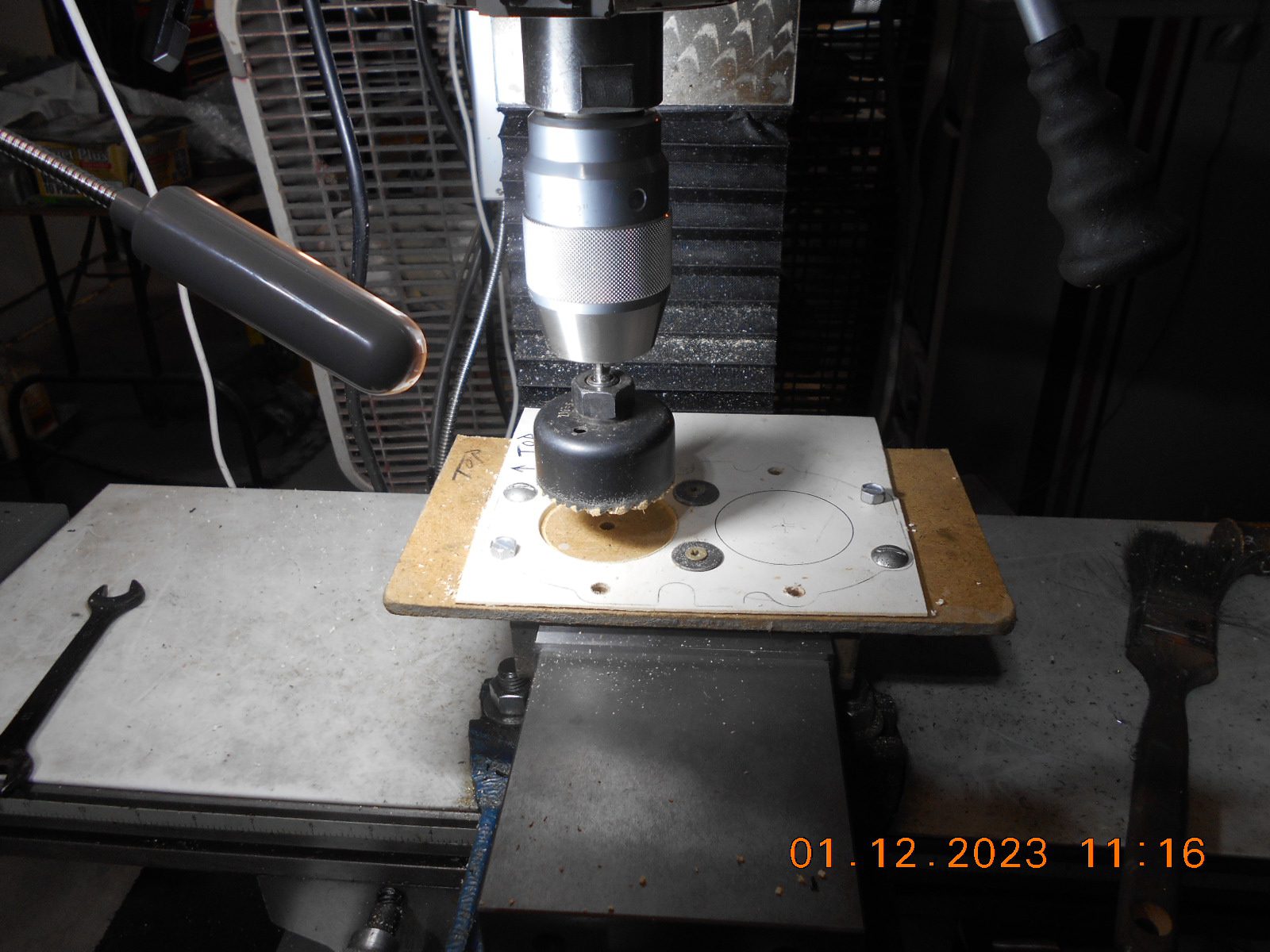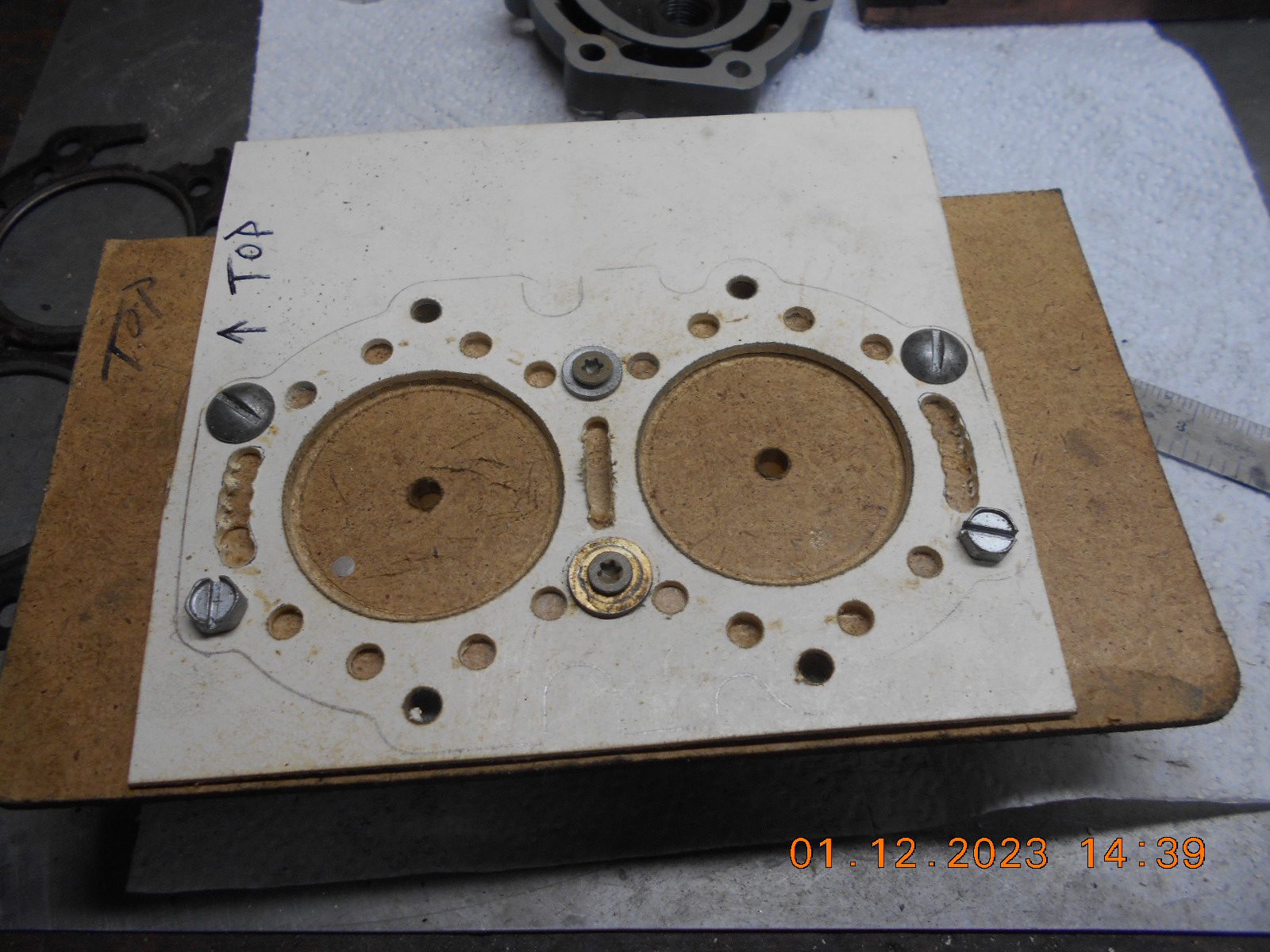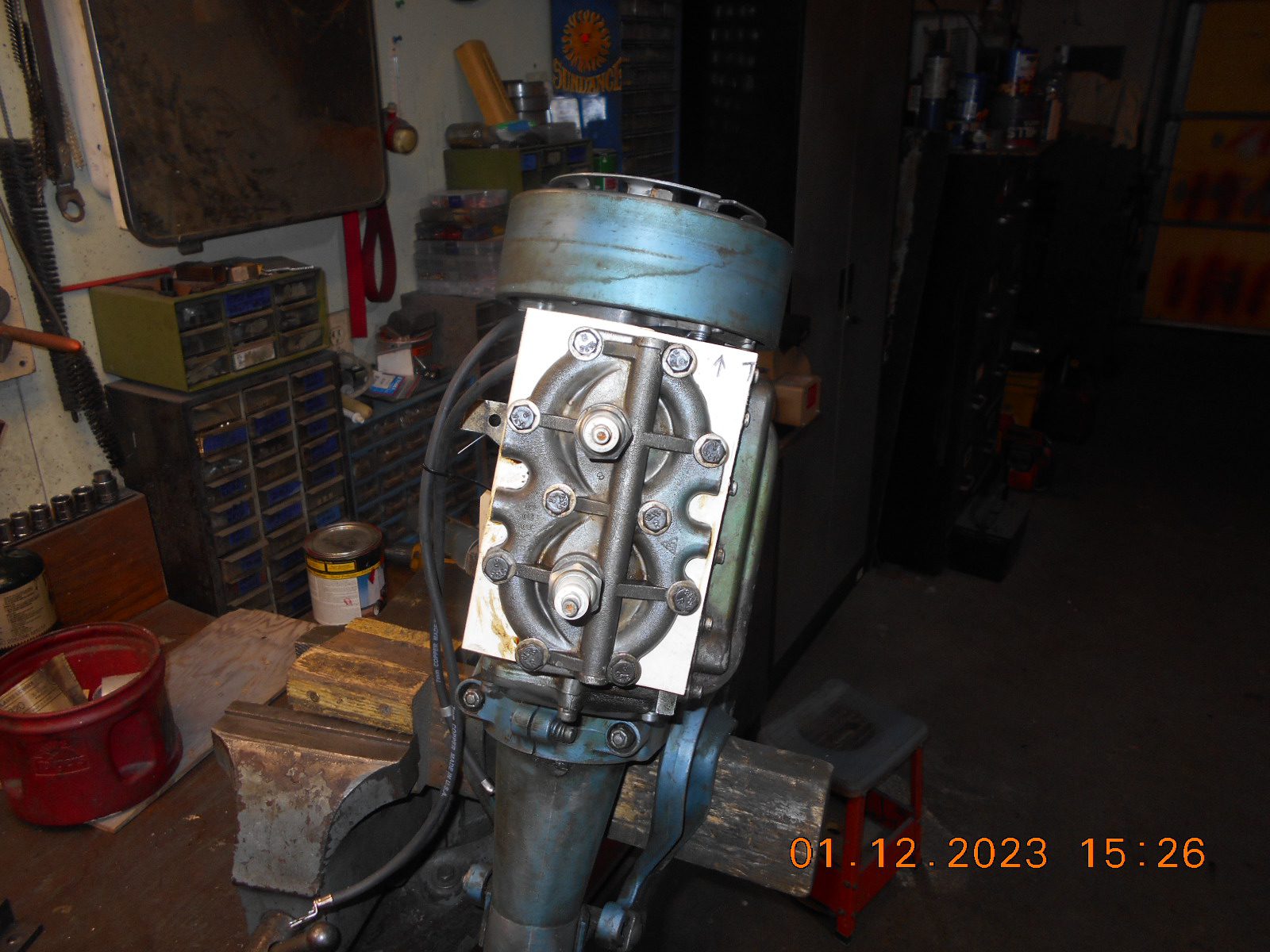Home › Forum › Ask A Member › Head Gasket Material
- This topic has 19 replies, 10 voices, and was last updated 2 years, 3 months ago by
crosbyman.
-
AuthorPosts
-
January 11, 2023 at 5:29 pm #271042
Mr. Gasket 77A, 1200 degree exhaust gasket material, is the best
thing I have handy to make a head gasket for the derelict Champion 4K
I’m working on. It’s close to the same thickness (.062) as the original gasket.It won’t have the metal “fire ring” near the cylinder edges like the original,
nor do I know how it will hold up to compression.I used the head for a drill guide for locating the head bolts.
I can’t think of way better to cut the cylinder holes out other
than an Exacto knife. Is there?There’s a gazillion holes in the original gasket on the “water side”.
Would that many be necessary?Prepare to be boarded!
January 11, 2023 at 6:05 pm #271054That Mr Gasket material is very similar in composition and thickness to the Cometic exhaust gasket material I used to make the head gaskets for my Champion rebuild. As you noted, I used an Exacto knife to cut out the cylinder openings. But I wondered if there was some way to first make a drill guide by cutting out the cylinder holes in a block of wood or piece of metal plate material with the appropriate size hole saw, then clamp the gasket sheet between the wood/metal drill guide and a 2nd backup block, then drill out the hole in the gasket with the hole saw. Using the Exacto knife on mine worked OK, although the edges of the cutout were just a bit ragged. Of course, I don’t have the fire rings on mine either but it seems to have worked so far (although I don’t have any serious amount of run time on the new gaskets yet).
Bob
1937 Champion D2C Deluxe Lite Twin
1954 Johnson CD-11
1955 Johnson QD-16
1957 Evinrude Fastwin 18
1958 Johnson QD-19
1958 Johnson FD-12
1959 Johnson QD-20“Every 20 minute job is only a broken bolt away from a 3-day project.”
"Every time you remove a broken or seized bolt an angel gets his wings."-
This reply was modified 2 years, 4 months ago by
 Bob Wight.
Bob Wight.
January 11, 2023 at 6:06 pm #271055The only “better” way to cut the cylinder holes out that I can think of would be to either find a tube or pipe that is close to the correct diameter and sharpen an end. Use that tube for a hollow punch against a piece of end grain hardwood and tap it through with a hammer. One could also do a bit of lathe work on a piece of tuning or round stock and make a little more precise punch if one was so equipped.
.
As for the water holes, as long as the gasket isn’t a big restriction compared to the OEM one, I don’t think it will be a big deal. I would want similar area to let water through, but the pump can only put out so much. That’s my 0.02.
-Ben
OldJohnnyRude on YouTube
January 11, 2023 at 7:39 pm #271061a common paper punch may have enough “reach” to punch the inside holes ..
the larger wide holes can be exactoed out
possibly smaller but adding a few hle punches should allow enough water flow if the total ” holes surface” area is close to the original gasket
Joining AOMCI has priviledges
-
This reply was modified 2 years, 4 months ago by
crosbyman.
January 11, 2023 at 9:49 pm #271064Thanks for the ideas!
I’m not sure yet if I have an appropriate size hole saw, but
will come up with a plan tomorrow.
I had thought about making a metal or wood disc to use as
a guide for the exacto knife to cut out the big holes……
not sure if that would be helpful or not.Many years ago at work I used a gasket cutting machine
to cut a large hole in a gasket. It had an arm with a pivot pin that
one would set up in the center of the hole to be cut, and there was
a fixture that slid on the arm with a exacto type of blade.
You just set the knife on the arm for the radius of the hole to be cut,
then pulled it around a few times in a circle until the hole was cut.
I can’t remember how the gasket sheet was held down on the cutting table.Prepare to be boarded!
January 12, 2023 at 12:41 am #271069bolt the gasket to the block. then cut it out.
January 12, 2023 at 2:21 am #271070In my experience it’s easy to cut the cylinder holes with an exacto knife.
The water holes are usually identical in size, I’ve used the nearest oversized hollow punch to punch these for my TD-20. In my case the bolt holes were also the same size so I had to punch a lot, but the punch made for easy work. It just took a couple of minutes.
Personally I would not skimp on the number of holes, after all they are there for a reason. I always try for my gaskets to be as close to the original as possible. Besides, the extra time spent is nothing compared to the time it would take to change your head gasket a second time around after you find it is overheating.January 12, 2023 at 5:59 pm #271084Gasket made today, but I have not cut away the excess OD yet.
I bolted the gasket material to a piece of 1/4″ fiber board, then
screwed that to a chunk of 2×4″.
This allowed me to mount it in the milling machine vise.I had a 2-1/8″ hole saw (the cylinder diameter) so I mounted it
in the milling machine. It had a fair amount of “run out”, so
I was afraid it was going to cut over-sized, but it did not.After tracing all the holes onto the gasket material using the old gasket,
I found center of the cylinder holes with a compass,
and marked a tiny hole with an ice pick.
I used a tiny pin in the milling machine to align up the center of the hole
to be cut out.
All the holes cut out fairly good, with only some “fuzzy” to clean out
of the holes.I then used some different size end mills to plunge cut the
holes for the water passages. It took a while, but faster
than waiting for a new gasket to arrive in the mail from
the Minneapolis Champion headquarters.For good luck, I used Aviation Permatex on both sides of the gasket.
The gasket is torqued down, and tomorrow I may cut off the excess OD.Prepare to be boarded!
January 12, 2023 at 7:54 pm #271104Nice! Good to see the hole saw method worked. I spent all that time cutting out the cylinder holes on my Champion gaskets with an Exacto knife and it was only after I got done that I thought about using a hole saw. Maybe some day I’ll make up another set.
Yeah, I tried to order new gaskets from the Champion HQ in Minneapolis but never got a response. Thought it might work for you since you’re a lot closer….
Bob
1937 Champion D2C Deluxe Lite Twin
1954 Johnson CD-11
1955 Johnson QD-16
1957 Evinrude Fastwin 18
1958 Johnson QD-19
1958 Johnson FD-12
1959 Johnson QD-20“Every 20 minute job is only a broken bolt away from a 3-day project.”
"Every time you remove a broken or seized bolt an angel gets his wings."January 12, 2023 at 11:26 pm #271105Bucc and Bob, did either of the gasket materials you referenced have a metal core? I have ( from NAPA) some material that should be ideal for head gaskets called ProRamic 2499 from FelPro. It’s rated for exhaust manifolds and has a thin steel core layer with heat resistant fiber layer on each side. It’s 0.064 thick. The problem is that you will not be able to cut it with a knife, a good punch will do the bolt holes, Cutting the shapes necessities, sandwiching between two plywood/ hardboard sheets and sawing, jig saw or hole saw.
I have not personally used it for a head gasket, but looks to be ideal.
Joe
-
This reply was modified 2 years, 4 months ago by
-
AuthorPosts
- You must be logged in to reply to this topic.


